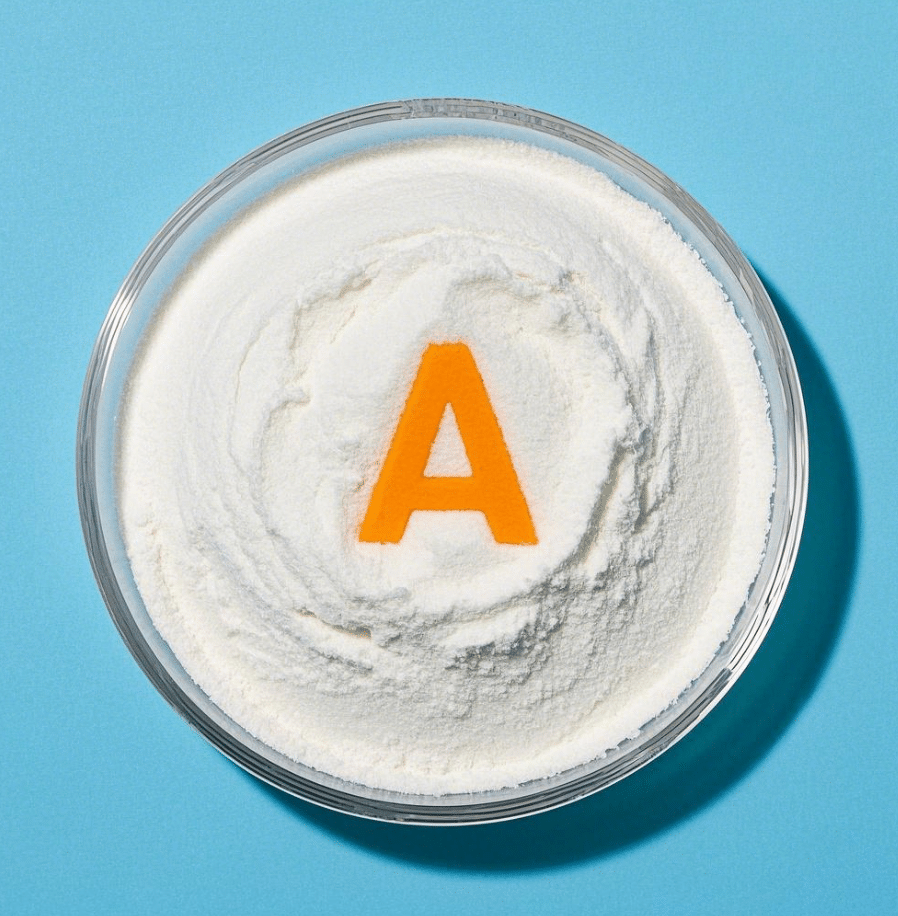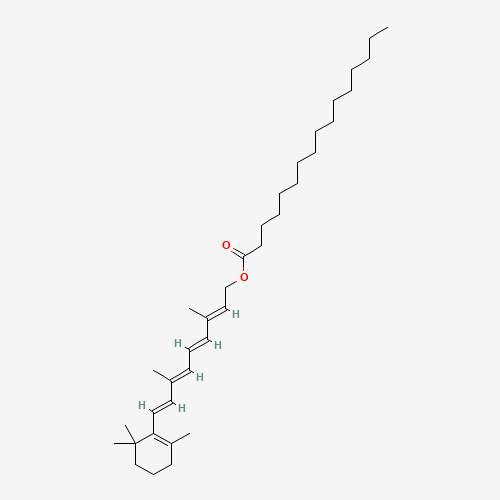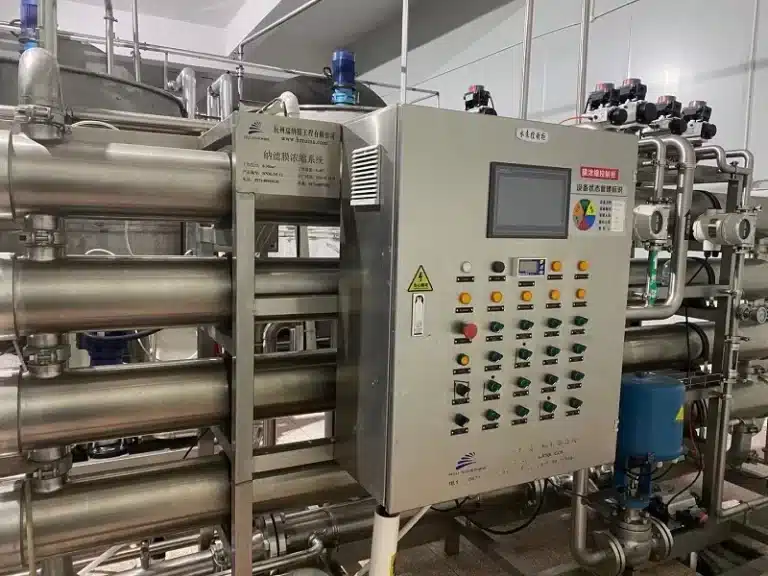
vitamin a palmitate powder
Vitamin A Palmitate is a synthetic ester of retinol (Vitamin A) and palmitic acid, commonly used in various industries for its nutritional and dermatological benefits. It is a stable form of Vitamin A, crucial for vision, immune function, and skin health. As a leading Vitamin A Palmitate manufacturer, Gensei is committed to producing high-quality Vitamin A Palmitate powder that meets stringent industry standards. Our product is widely utilized in dietary supplements, fortified foods, cosmetics, and pharmaceuticals, ensuring a reliable source for your formulation needs. We focus on purity and efficacy, offering a consistent and superior ingredient for global distribution.
Please note: We are a wholesale supplier and have minimum order quantities.
Have questions about this product? Our team is here to help. For inquiries about multiple ingredients, please use the Contact Us option and include the list of ingredients in your message.
- Vitamin A Palmitate CAS No.: 79-81-2
- Chemical Name: Retinyl palmitate
- Synonyms: Retinol palmitate; Vitamin A acid palmitate; Axerophthol palmitate
- CB Number: CB9194262
- Molecular Formula: C$_{36}$H$_{60}$O$_{2}$
- Molecular Weight: 524.86 g/mol
- MDL Number: MFCD00001550

Vitamin A Palmitate Manufacturing Process
Retinol Sourcing
High-purity retinol is sourced from reputable suppliers, ensuring the foundational quality of the Vitamin A Palmitate.
Palmitic Acid Preparation
Pharmaceutical-grade palmitic acid is prepared and purified, ready for esterification with retinol.
Esterification Reaction
Retinol is reacted with palmitic acid under controlled conditions to form Vitamin A Palmitate, optimizing yield and purity.
Purification & Filtration
The crude Vitamin A Palmitate is subjected to multiple purification steps, including filtration, to remove impurities and byproducts.
Crystallization/Drying
The purified Vitamin A Palmitate is crystallized or dried to obtain the desired powder form, ensuring stability and consistency.
Quality Control Testing
Rigorous quality control tests are performed, including purity assays, heavy metal analysis, and microbial testing, to ensure compliance with specifications.
Milling & Sieving
The dried Vitamin A Palmitate powder is milled to achieve the desired particle size and sieved to ensure uniformity.
Packaging
The final Vitamin A Palmitate powder is carefully packaged in airtight containers, protecting it from light and oxidation to maintain its efficacy.
Storage & Distribution
Packaged Vitamin A Palmitate is stored under optimal conditions and distributed globally as a high-quality ingredient.
Why Choose Gensei as Your Vitamin A Palmitate Supplier?
Gensei stands as a leading Vitamin A Palmitate manufacturer, offering a superior Vitamin A Palmitate powder that defines industry benchmarks. As your dedicated Vitamin A Palmitate supplier, we pride ourselves on innovative production techniques and rigorous quality assurance. Our commitment to excellence means you receive a consistently high-grade Vitamin A Palmitate, perfect for diverse applications. We understand the critical role of a reliable Vitamin A Palmitate manufacturer, and our global distribution network ensures timely delivery and competitive pricing. Partner with Gensei for a seamless supply chain and premium Vitamin A Palmitate.
Characteristics of Vitamin A Palmitate:
- Stability: A stable ester form of Vitamin A, less prone to oxidation compared to retinol, allowing for longer shelf life in formulations.
- Bioavailability: Readily converted to retinol in the body, providing essential Vitamin A benefits.
- Fat-Soluble: As a fat-soluble vitamin derivative, it is well-absorbed when consumed with fats.
- Purity: High-quality Vitamin A Palmitate powder is typically very pure, often exceeding 98% purity.
- Versatility: Its stability and efficacy make it suitable for a wide range of applications.
Application Scenarios of Vitamin A Palmitate:
- Dietary Supplements: A common ingredient in multivitamin and Vitamin A supplements for vision, immune health, and general well-being.
- Food Fortification: Used to fortify dairy products, cereals, and other foods to combat Vitamin A deficiency.
- Cosmetics and Skincare: Incorporated into anti-aging creams, lotions, and serums due to its skin-rejuvenating and antioxidant properties, helping to improve skin tone and texture.
- Pharmaceuticals: Utilized in ophthalmic preparations and other therapeutic formulations requiring Vitamin A.
- Animal Nutrition: Added to animal feed to support animal growth, reproduction, and overall health.
Our State-of-the-Art Manufacturing Facilities
Explore our modern facilities equipped with advanced technology to ensure the highest quality in the production of your vitamins, herbal extracts, minerals, and amino acids.











FAQs
Vitamin A Palmitate is an ester of retinol (Vitamin A) and palmitic acid. It's a common and stable form of vitamin A, frequently used in supplements, fortified foods, and cosmetics for its vital role in vision, immune function, and skin health.
The vitamin a palmitate benefits include supporting healthy vision, bolstering the immune system, promoting healthy skin cell turnover, and acting as an antioxidant. It is crucial for growth and development, particularly in infants and children.
Yes, when consumed within recommended dosages, Vitamin A Palmitate is generally considered safe. However, excessive intake can lead to hypervitaminosis A, so it's important to adhere to guidelines.
Vitamin A Palmitate is a storage form of vitamin A that needs to be converted to retinol in the body before it can be utilized. Retinol is the active form. Vitamin A Palmitate is more stable and less prone to degradation than pure retinol, especially in formulations.
Traditionally, vitamin A palmitate has been derived from animal sources. However, with advances in technology, vegan vitamin a palmitate is now available, typically produced through microbial fermentation or other plant-based synthesis methods, making it suitable for vegan diets.
While vitamin A is essential during pregnancy, high doses of vitamin a palmitate can be teratogenic (cause birth defects). It's crucial for pregnant women to consult their healthcare provider regarding appropriate vitamin A intake to ensure vitamin a palmitate pregnancy safety and avoid excessive amounts.
In cosmetics, Vitamin A Palmitate is valued for its anti-aging properties. It helps to improve skin elasticity, reduce the appearance of wrinkles, and promote a more even skin tone. It's also an antioxidant, protecting skin from environmental damage.
Vitamin A Palmitate powder should be stored in a cool, dry place, away from direct sunlight and heat. It's important to keep it in an airtight container to prevent oxidation and maintain its stability and potency.
The recommended daily intake varies depending on age, sex, and specific health needs. It's best to refer to official dietary guidelines from health authorities or consult a healthcare professional for personalized recommendations.
Vitamin A derivatives, including some forms that can be converted from Vitamin A Palmitate, are often used in topical treatments for acne due to their ability to regulate skin cell growth and reduce inflammation. However, direct use of Vitamin A Palmitate powder for acne treatment is not common; it's typically found in formulated products.

